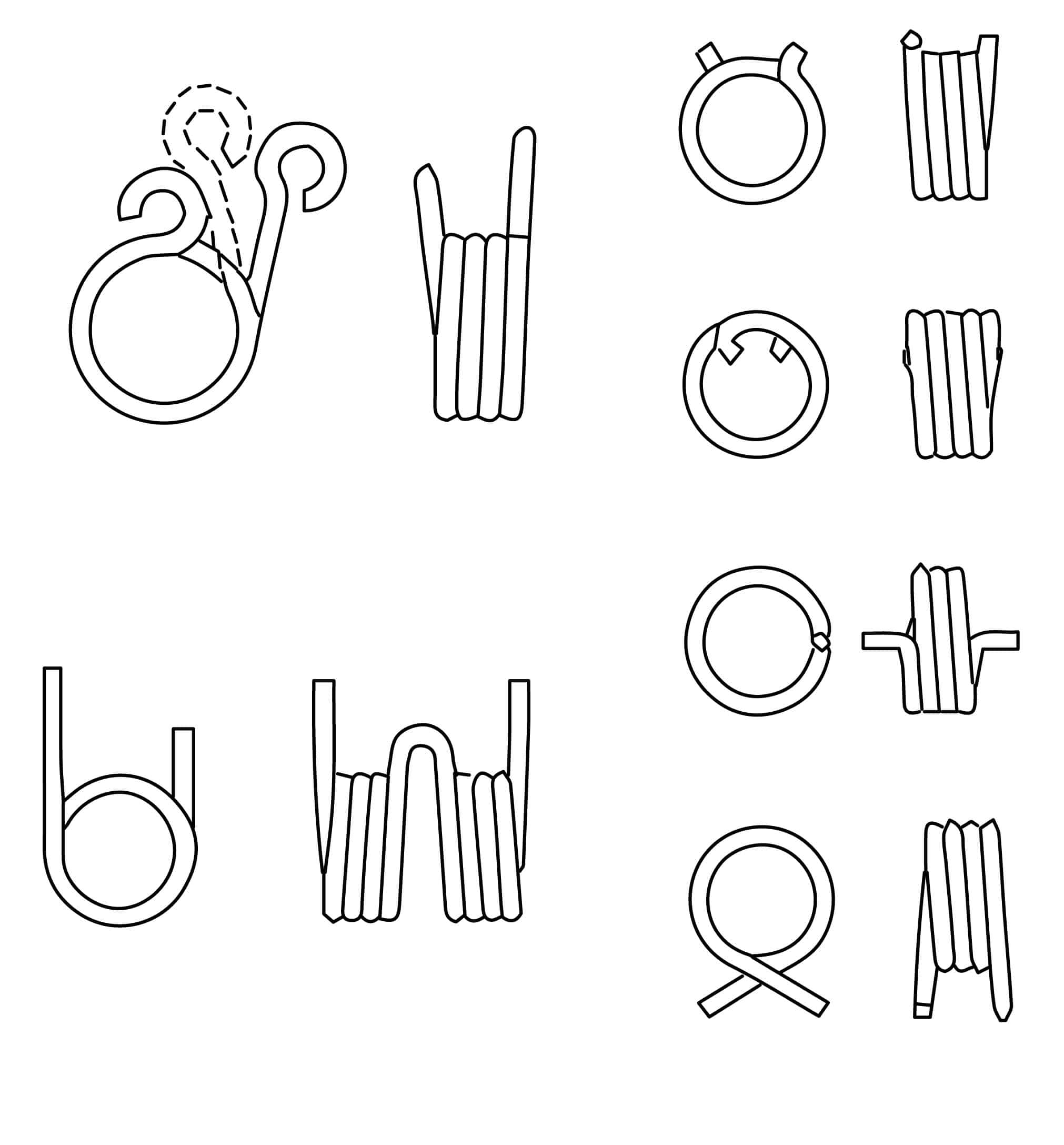Get unique, complex parts easily. No matter your requirements, Chaoyi Spring creates hard-to-produce coil springs and wire forms.
Let us help you create the custom wire form you need, from S-hooks and J-hooks to utility hooks and more.
We work closely with customers across a wide range of industries, helping them design and manufacture made-to-order parts.
Why choose Chaoyi Spring? We prioritize customer-focused collaboration, modern equipment and the latest technology to make your parts per print.
Find the information and guidance you need, from measuring a spring to learning about materials, placing an order and much more.
Your garage door is a heavy, complex piece of machinery that you probably don't think much about until it stops working. One of the most critical components of a garage


Your garage door is a heavy, complex piece of machinery that you probably don't think much about until it stops working. One of the most critical components of a garage door system is the torsion spring, which is responsible for lifting and lowering the door smoothly. Torsion springs are powerful and dangerous, so it's important to understand their role and how to maintain them. If you're not familiar with garage door torsion springs, this article is for you. We'll delve into what makes these springs so important, the different types of springs used in garage doors, and when you should consider replacing them.

Picture this: you pull the handle on your garage door opener, and the door effortlessly glides up, revealing the treasures within your garage. This seamless operation isn't magic; it's all thanks to the hardworking torsion springs. These coil springs, located above the garage door opening, are what give your door the power to open and close. They're like the muscles of your garage door, providing the strength to lift that heavy door against gravity.
Torsion springs work by storing potential energy when they're wound tightly. As the garage door opens, the tension in the springs is released, providing the force needed to raise the door. When you close the door, the springs wind back up, storing energy for the next opening cycle. This continuous cycle of winding and unwinding makes garage doors a marvel of simple yet effective mechanics.
Torsion springs come in different sizes and configurations depending on the size and weight of your garage door. The most common types of springs are:
The type of torsion spring required for your garage door will depend on several factors, including the weight of the door, the door's size, and the desired opening speed. It's always best to consult a qualified garage door professional to determine the right type of spring for your specific needs. Don't try to guess or install the springs yourself; doing so can be extremely dangerous.
Torsion springs might seem like a small, unseen part of your garage door, but they're crucial for its proper operation and your safety. When these springs malfunction, the consequences can be serious:
These reasons highlight the importance of maintaining your garage door's torsion springs and ensuring they're in good working order. Regular inspections and timely replacements can save you from potential hazards, costly repairs, and headaches.
While you may not be able to see the torsion springs, there are telltale signs that they're nearing the end of their lifespan and need to be replaced. Keep an eye out for the following:
If you notice any of these signs, it's time to call a professional garage door technician. They can properly assess the condition of your torsion springs and determine if they need to be replaced.
Working with torsion springs is not a DIY project. These springs are under high tension, and attempting to repair or replace them yourself can be extremely dangerous. A single mistake can lead to serious injury. It's always best to leave these tasks to trained professionals who understand the intricacies of garage door systems and can work safely with these powerful springs.
A qualified garage door technician will have the expertise and tools to:
Regular maintenance can help extend the life of your garage door torsion springs and ensure they continue to function properly. Here are a few tips for keeping your springs in good shape:
Garage door torsion springs might be hidden away, but they play a vital role in the smooth operation of your garage door. It's important to be aware of their importance, how they work, and the signs that they need to be replaced. By taking the time to understand these crucial components, you can ensure the safe and efficient operation of your garage door for years to come.
Don't let the unsung heroes of your garage door—the torsion springs—go unnoticed. Pay attention to their well-being, and you'll be rewarded with a reliable, smooth-operating door. And when the time comes for replacement, trust the job to a qualified garage door professional. After all, your safety and peace of mind are worth it.
Browse some of the custom wire forms and springs that we manufacture. Don’t see what you need? We specialize in made-to-order products that meet your application requirements.
Visit Our GalleryNeed a custom wire form or coil spring? We make it work. Fill out the contact form and a representative will respond within 1 business day. If you have a PDF or CAD file, you can submit to request a quote.